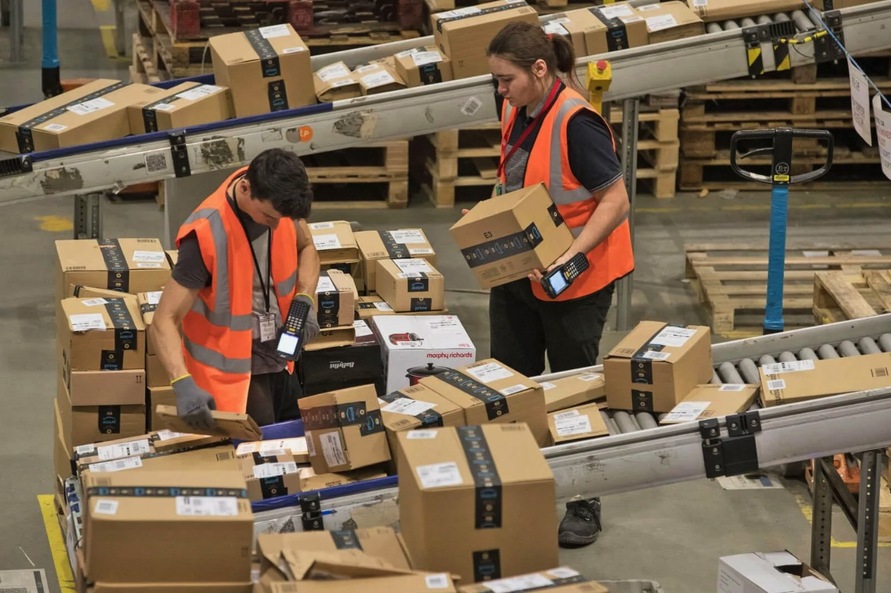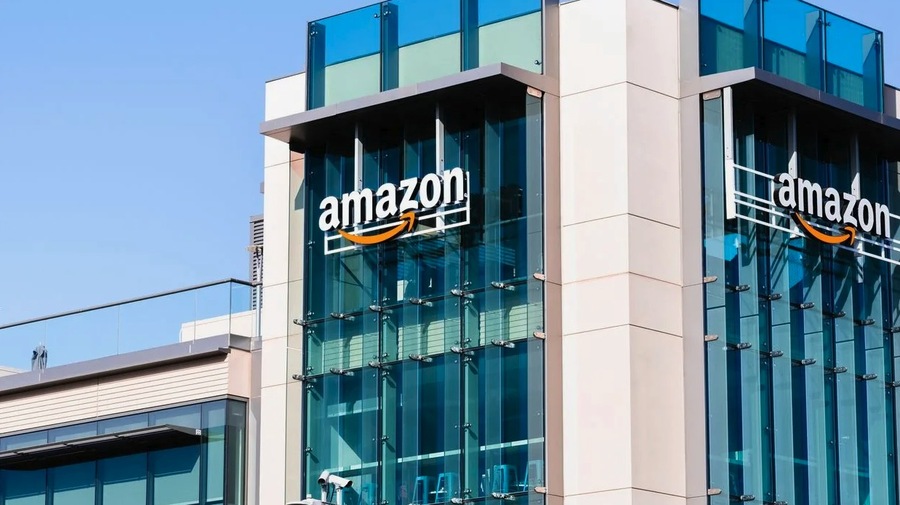Amazon, which started off in Jeff Bezos’s garage in 1994 as a modest online bookstore, has exploded into a behemoth that spans across multiple industries including e-commerce, cloud computing, digital streaming, and artificial intelligence. As a leader in global retail, Amazon offers an unparalleled selection of products and is continuously at the forefront of technological innovations in logistics and supply chain management. Its reputation for convenience, coupled with its disruptive approach to traditional retail and business operations, has made Amazon not just a shopping destination but a powerhouse driving market trends and consumer expectations worldwide.
History and Development of Amazon
Early Beginnings
1994: Jeff Bezos founded Amazon, aiming to exploit the untapped potential of the internet for retail, beginning with an online bookstore.
1995: Amazon.com was launched, broadening its catalog beyond books to include a wide range of consumer goods, setting the stage for its later dominance in online retail.
Major Milestones
1997: Amazon held its initial public offering (IPO), which provided the capital infusion needed to expand its operations significantly.
2000: Amazon introduced its marketplace platform, transforming the business model to include third-party sellers, diversifying its product offerings and revenue streams.
2005: The introduction of Amazon Prime revolutionized customer service standards in e-commerce with benefits such as free two-day shipping.
2006: Marking its entry into the technology service industry, Amazon launched Amazon Web Services (AWS), which would grow to become a cornerstone of its business model.
2012: Amazon’s acquisition of Kiva Systems (now Amazon Robotics) was a strategic move to automate its inventory management and logistics, significantly enhancing operational efficiency.
2017: The acquisition of Whole Foods Market marked Amazon’s bold foray into the physical retail grocery sector, expanding its footprint beyond digital.
2021: Leadership transition occurred with Andy Jassy, former AWS CEO, taking over as Amazon’s CEO, signaling a stronger focus on cloud computing and technology.

Amazon’s Subsidiaries and Their Activities
Amazon Web Services (AWS): As the leader in cloud computing, AWS offers a comprehensive range of services such as computing power, storage options, and networking that cater to a wide range of customers from startups to large corporations and government agencies, helping them scale and grow.
Zoox: Acquired in 2020, Zoox is at the forefront of developing autonomous vehicle technology, aiming to provide a fully self-driving ride-hailing service that is both environmentally friendly and sustainable.
Kuiper Systems: This project, initiated in 2019, focuses on building a network of satellites to provide high-speed, low-latency broadband internet services across the globe, targeting underserved communities.
Amazon Lab126: Known for its innovative consumer electronics, Lab126 is responsible for creating devices that integrate seamlessly with Amazon’s service ecosystem, such as the Amazon Echo and Kindle devices.
Amazon’s Financial Health
Amazon has consistently demonstrated robust financial performance with its diverse portfolio of services contributing to a revenue stream that exceeded $386 billion in 2020. Its financial strength is underpinned by its core retail operations as well as the high-margin cloud computing services provided by AWS, which continue to grow at an impressive rate. The company’s ability to innovate, scale, and enter new markets is a testament to its solid financial foundation, which supports ongoing investments in technology and global expansion.
Global Presence
Amazon’s global operations are vast and varied, spanning numerous continents including North America, Europe, and Asia. It has built a significant infrastructure network featuring fulfillment centers, corporate offices, and customer service centers to support its vast range of services and ensure a seamless customer experience. In key markets such as the United States, Canada, Germany, India, and Japan, Amazon adapts its business strategies to align with local consumer preferences and regulatory environments, which has been critical to its international success.
Main Activities of Amazon
Amazon’s core business activities are deeply integrated and diversified to ensure wide-reaching market penetration:
E-commerce: Amazon’s online marketplace offers millions of products, making it one of the largest retailers in the world, known for disrupting traditional retail through significant technological innovation.
Amazon Prime: This subscription service is central to Amazon’s strategy, binding customers to its ecosystem through benefits that include faster shipping, exclusive content, and various other perks.
Cloud Computing (AWS): AWS is not just a major revenue generator; it’s a global leader in providing scalable cloud infrastructure, paving the way for digital transformations across countless industries.
Consumer Electronics: Through innovative R&D at Amazon Lab126, the company continues to expand its footprint in the consumer electronics market, enhancing user engagement.
Digital Streaming: Services such as Amazon Prime Video and Amazon Music position Amazon strongly in the digital entertainment industry, competing directly with other giants in the streaming space.

Detailed Insight into Amazon Web
Services (AWS)
AWS, which began in 2006 as an addition to Amazon’s growing portfolio, has become a defining feature of the company, offering a broad suite of cloud services that include machine learning, artificial intelligence, and computing services. It serves millions of customers worldwide, providing tools that businesses use to scale operations, decrease costs, and innovate more quickly. AWS’s global dominance is evidenced by its wide adoption and the critical role it plays in the operational backbone of many companies across varied industries.
AWS Popularity in the UAE
In the United Arab Emirates, AWS plays a crucial role as the region positions itself as a central hub in the Middle East’s economic landscape. Dubai, in particular, benefits from AWS services provided by Infolab Global, which facilitates cutting-edge IT solutions and services. This partnership underscores the strategic importance of advanced technologies and cloud infrastructure in driving the UAE’s ambitions as a leading global innovation center.
Conclusion
Amazon’s evolution from a simple online bookstore to a global powerhouse encapsulates its monumental impact on commerce, technology, and global market dynamics. With ongoing expansions into new markets and continuous technological advancements, Amazon is poised to remain a dominant force, shaping future trends in digital transformation and consumer behavior while fostering economic growth and technological innovation globally.

Hockey fan, tattoo addict, audiophile, Saul Bass fan and RISD grad. Working at the intersection of modernism and mathematics to craft experiences both online and in real life. My opinions belong to nobody but myself.





